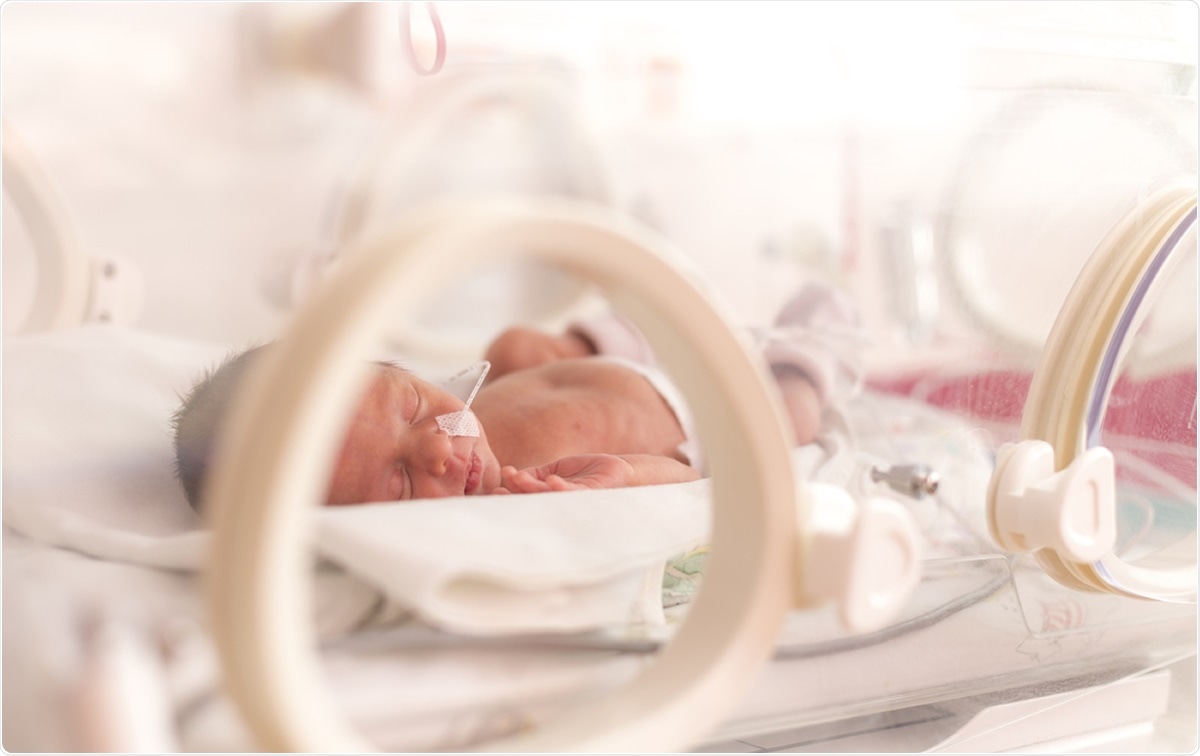Neonates exposed to SARS-CoV-2 can sustain adverse health outcomes
The incidence of severe acute respiratory syndrome coronavirus 2 (SARS-CoV-2) transmission from mothers to newborns appears low and may be linked to biological as well as social factors. However, studies focusing on the factors associated with neonatal viral testing outcomes.
Test positivity rate and health outcomes of maternal SARS-CoV-2 infection among perinatally exposed newborns
Recently, researchers from the US conducted a study in a cohort of 255 neonates born to women who tested positive for SARS-CoV-2 within 14 days before and 72 hours after delivery. The multicenter cohort study was conducted across 11 community or academic hospitals in Massachusetts in mother-newborn pairs whose delivery and discharge happened between March 1 and July 31, 2020. Eligible mother-newborn pairs were identified at participating hospitals using local COVID-19 surveillance and infection control systems.

Objectives, risk factors, and outcomes of the study
Their main objectives were to determine 1) the percentage of newborns born to mothers who were SARS-CoV-2 positive during birth, 2) the sociodemographic and clinical factors linked to neonatal virus positivity, and 3) the virological as well as clinical outcomes for newborns during their time in the hospital and 30 days after discharge.
Maternal risk factors in newborn virus positivity included maternal COVID-19 symptoms, rooming-in practice, vaginal delivery, zipcode–based social vulnerability index, and Black race or Hispanic ethnicity. The burden of viral exposure on newborn health was strongly associated with preterm delivery, driven by worsening COVID-19 disease in the mother.
The primary outcomes for newborns were (1) SARS-CoV-2 positivity, (2) adverse health indicators, and (3) clinical symptoms and testing. Test result positivity was defined as a minimum of 1 positive result on a nasopharyngeal swab specimen using the RT-PCR method. Clinical and testing data were obtained from electronic health records within 30 days of discharge from the hospital.
Out of the 255 newborns in the study cohort, 62 [24.3%] had low birth weight or preterm delivery. Out of the 250 mothers in the cohort, 121 [48.4%] were Hispanic.
Results show an association between high maternal social vulnerability and higher neonatal viral positivity
The results of this study show that newborns who were exposed to SARS-CoV-2 perinatally can experience adverse health outcomes. This can be direct outcomes as shown by higher SARS-CoV-2 positivity rates in neonates born to socially vulnerable mothers or indirect outcomes as evidenced by preterm birth in SARS-CoV-2 positive mothers.
"Maternal social vulnerability was associated with an increased risk for neonatal test result positivity, whereas individual-level maternal race/ethnicity and language status was not."
A total of 225 (88.2%) neonates born to SARS-CoV-2-infected mothers were tested for SARS-CoV-2 and 5 (2.2%) tested positive during hospitalization. High maternal social vulnerability was linked to higher neonatal viral positivity adjusted for maternal delivery mode, COVID-19 symptoms, and rooming-in practice.
"Newborns with positive SARS-CoV-2 test results appeared to have minimal burden of illness that was directly associated with a viral infection."
Findings highlight the importance of biological and social factors influencing perinatal SARS-CoV-2 infection outcomes
The study's findings highlight the significance of both the biological and social factors influencing perinatal SARS-CoV-2 infection outcomes.
Interestingly, adverse outcomes in mothers at the time of hospitalization were linked to preterm delivery, which was indicated by worsening COVID-19 symptoms of the mother. A total of 151 newborns were followed up, and based on the data obtained, 28 had nonroutine clinical visits, 7 were tested for SARS-CoV-2 testing, and 1 had a positive result.
The study shows that neonates who were exposed to SARS-CoV-2 were at risk for both direct and indirect adverse health outcomes. This supports ongoing viral surveillance and long-term follow-up.
"Newborns who had exposure to SARS-CoV-2 were at risk for both direct and indirect adverse health outcomes, whereas preterm delivery owing to worsening maternal COVID-19 illness was associated with substantial neonatal morbidity."
- Angelidou A, Sullivan K, Melvin PR, et al. Association of Maternal Perinatal SARS-CoV-2 Infection With Neonatal Outcomes During the COVID-19 Pandemic in Massachusetts. JAMA Netw Open. 2021;4(4):e217523. doi:10.1001/jamanetworkopen.2021.7523, https://jamanetwork.com/journals/jamanetworkopen/fullarticle/2779051?utm_source=For_The_Media
Posted in: Child Health News | Medical Research News | Women's Health News | Disease/Infection News
Tags: Birth Weight, Coronavirus, Coronavirus Disease COVID-19, Hospital, Infection Control, Language, Newborn, Pandemic, Respiratory, SARS, SARS-CoV-2, Severe Acute Respiratory, Severe Acute Respiratory Syndrome, Syndrome, Vaginal, Virus

Written by
Susha Cheriyedath
Susha has a Bachelor of Science (B.Sc.) degree in Chemistry and Master of Science (M.Sc) degree in Biochemistry from the University of Calicut, India. She always had a keen interest in medical and health science. As part of her masters degree, she specialized in Biochemistry, with an emphasis on Microbiology, Physiology, Biotechnology, and Nutrition. In her spare time, she loves to cook up a storm in the kitchen with her super-messy baking experiments.
Source: Read Full Article
